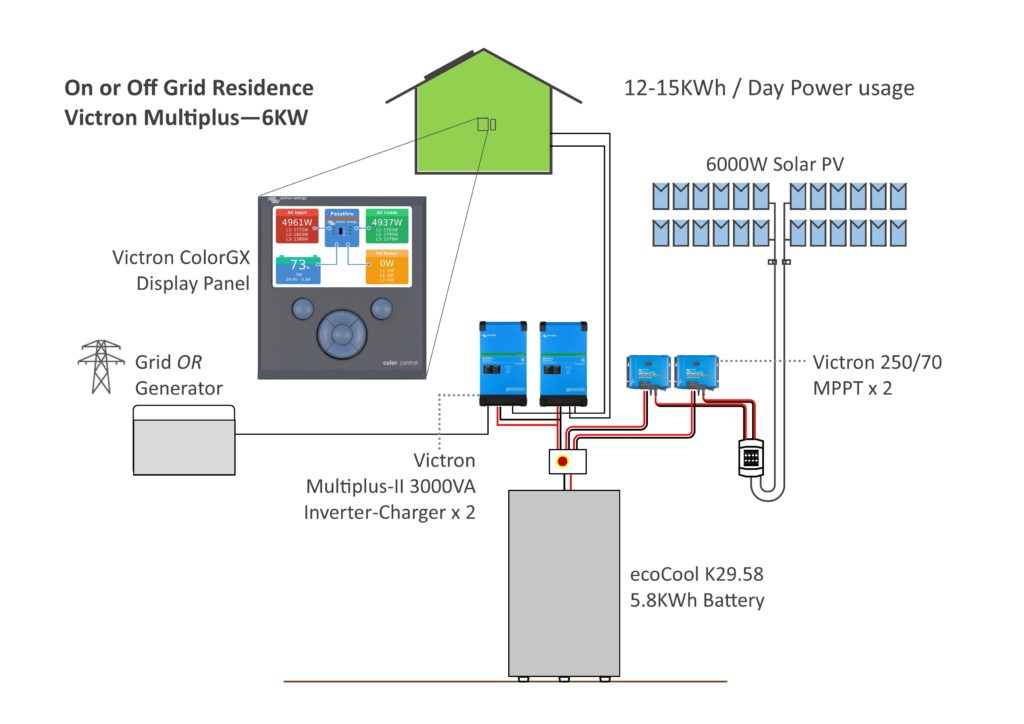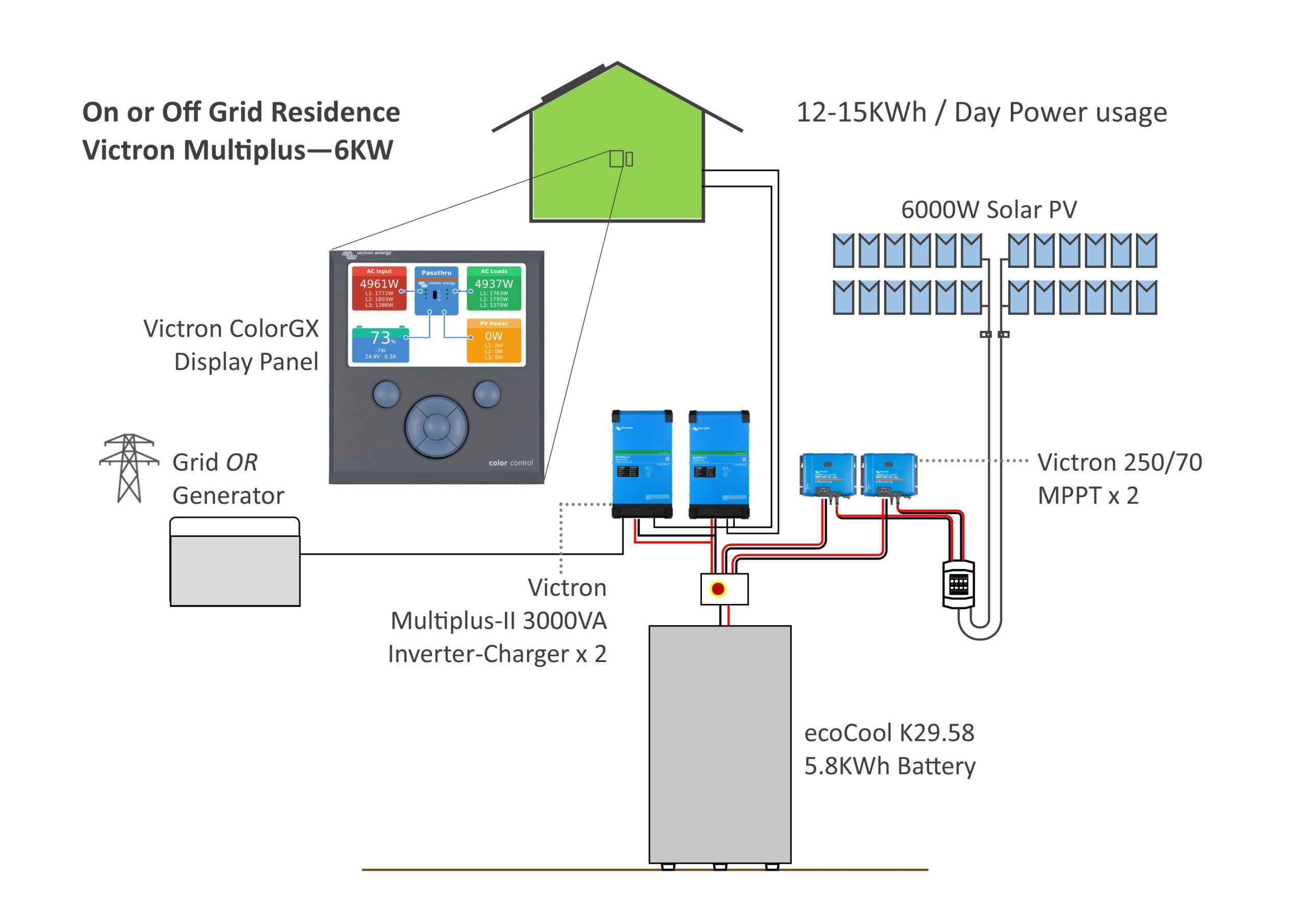While most of us choose to buy AC (Alternating Current) Solar inverters, there is another choice: DC coupled, or DC to battery to inverter/charger systems. Victron make a line of well respected Inverter Chargers, the Multiplus Range. Let’s take a look at an off or on grid system, made up of 2 x Multiplus-II, and up to 8kW of Solar panels.

The setup here is:
- 1 x 5.8KWh ecoCool battery (AGM supercycle batteries, 5-8 year life 100% discharge)
- 2 x Victron Bluesolar 250/60 MPPT solar charge controllers, parallelled
- 2 x Victron Multiplus-II Inverter/chargers (AS4777 certified – use on or off grid, ESS mode)
- Victron Color GX Display Panel, to show battery state of charge, AC/Grid/Solar levels
- Generator control is available via the Color GX (a relay actuated by certain trigger points, like low battery/solar levels)
- 4 Strings of 300W Solar panels, in this case 7.68KW, (and up to 8KW, for the 2 x MPPTs)
You can buy this package from ecoCool for $14,850. Installed by a CEC qualified installer, you will get around $4,000 in solar credits, so the net cost will be: $11850 plus installation cost. Or you can choose components which suit your residence, from ecoCool’s range.
The main difference between a standard, on-grid AC-coupled system, and this DC coupled Victron system, is that the PV power in the AC coupled system, feeds through the AC inverter, which turns it immediately into power. Usually, to be self-consumed, or sent to the grid, and a feed-in rate. On the DC coupled system, the Solar feeds through a high efficiency MPPT controller, to charge the batteries, or partly to turn into AC power in the Multiplus inverter/charger. That is the main difference: the battery is a central bank of power, and the inverter runs power both ways, much of the time taking DC power from the Solar or battery, and creating AC power, and sometimes (especially with a generator), it can charge the batteries. Victron’s Multiplus and ColorGX allow many configurations, in order to charge, or feed AC into the home, or even turn on the generator, automatically. Great for off-grid residences. And perhaps if you have a desire to go off grid, and currently are on-grid.

